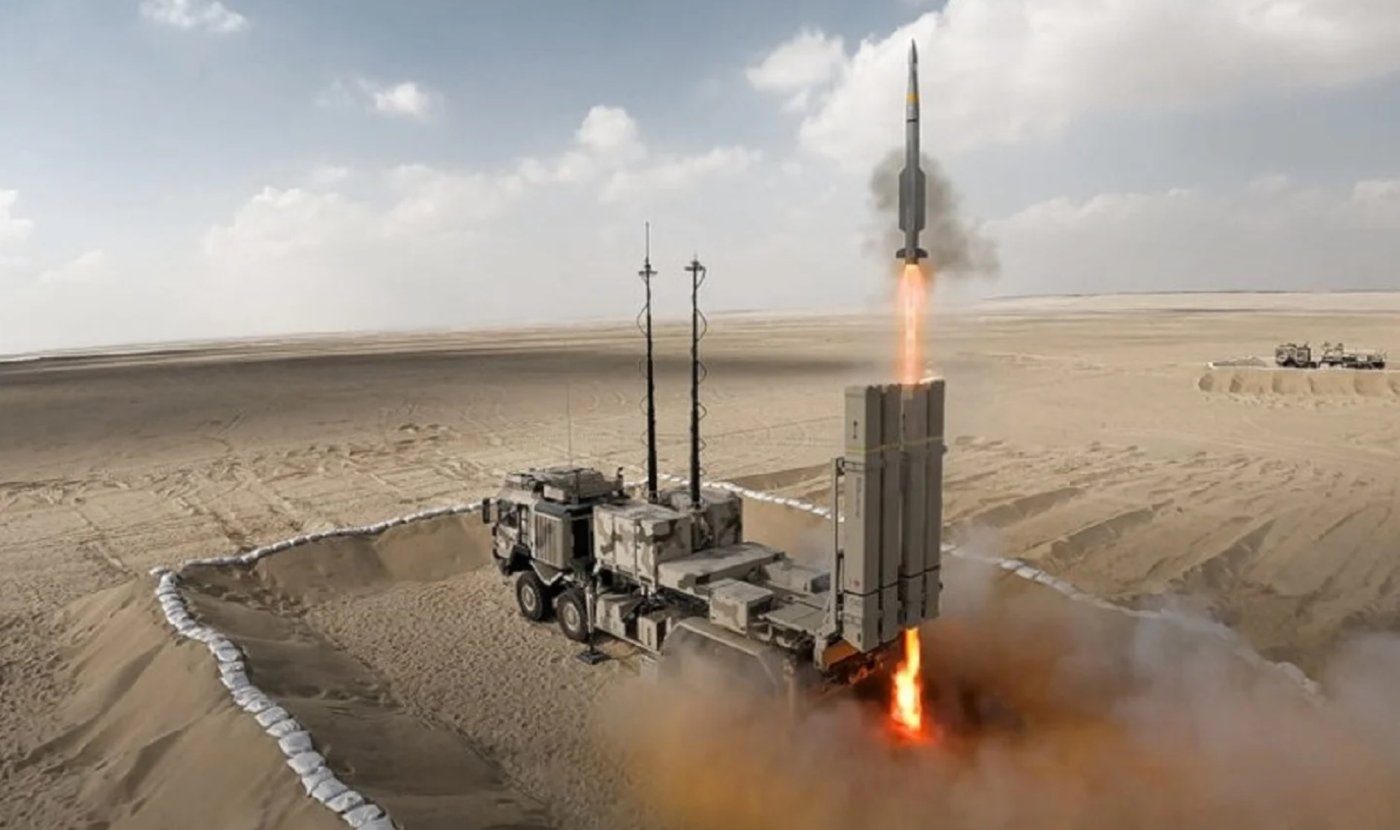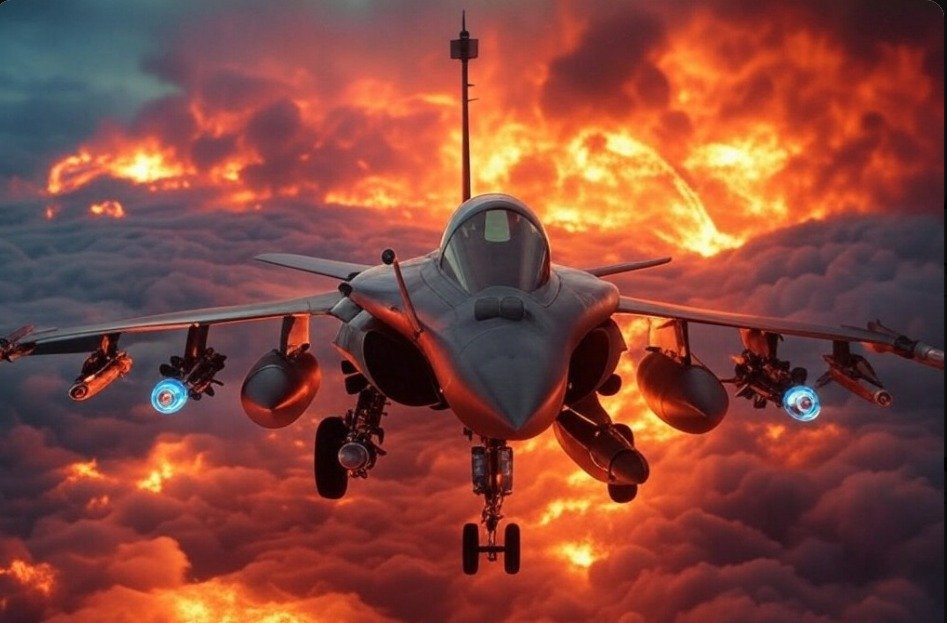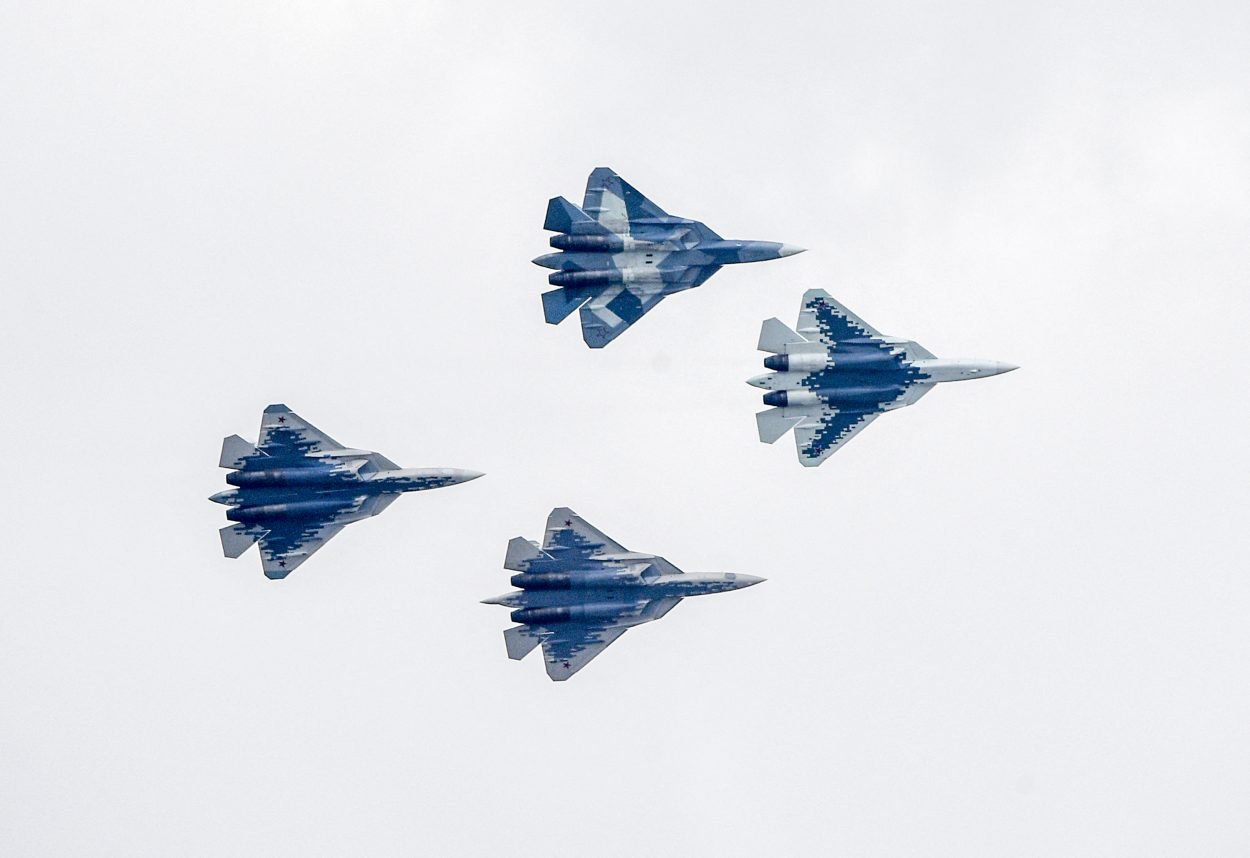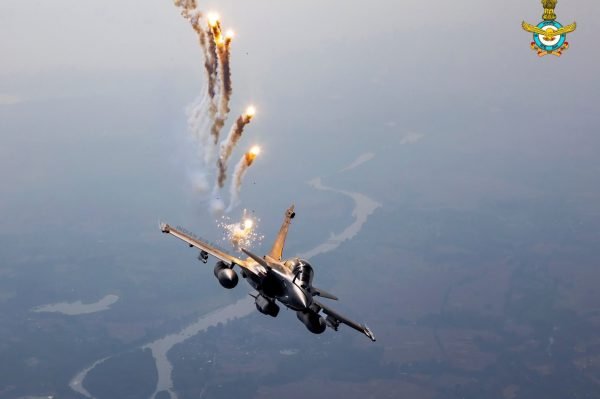After enduring more than two years of war in Ukraine and a global sanctions regime, Russia, once considered one of the world’s most powerful nations, has fallen to sixth place in the Asia Power Index.
The Australia-based think tank Lowy Institute recently published its latest version of the ‘Asian Power Index,’ which ranks the relative power of 27 nations and territories in the Indo-Pacific region by comparing their strengths against 131 indicators over eight thematic criteria.
Russia has slipped one position in the Asia Power Index 2024, scoring 31 out of 100, an overall decline of 0.4 points.
An overview published by the Institute states that Russia is only one of the three countries to record a decline. Russia’s military prowess expanded as it mobilized a war economy to bolster its offensive against Ukraine. However, its scores decreased for the following five metrics: cultural influence, economic aptitude, resilience, economic linkages, and defense networks.
The report further states that Russia already registered a decline last year, falling four rankings in the Asia Power Index 2023. However, with the war in Ukraine still raging, it went down two more spots this year.
In an interesting development, Australia has superseded Russia, which retained the fifth position in the Asia Power Index 2024.
This may be a new low for Russia, which has enjoyed the prestige of being a global superpower competing against the United States. The report suggests that Russia may be losing its relevance in Asia due to its preoccupation with the Ukraine war and the loss of resources.
Other emerging powers—Australia, Japan, and India—have quickly filled the void.
The United States continues to be the leading power, followed closely by China, while India, Japan, and Australia occupy the third, fourth, and fifth positions, respectively.
The survey’s main conclusion is that China’s strength is neither growing nor shrinking. Although it is plateauing below that of the US, it is still far higher than that of any Asian rival.
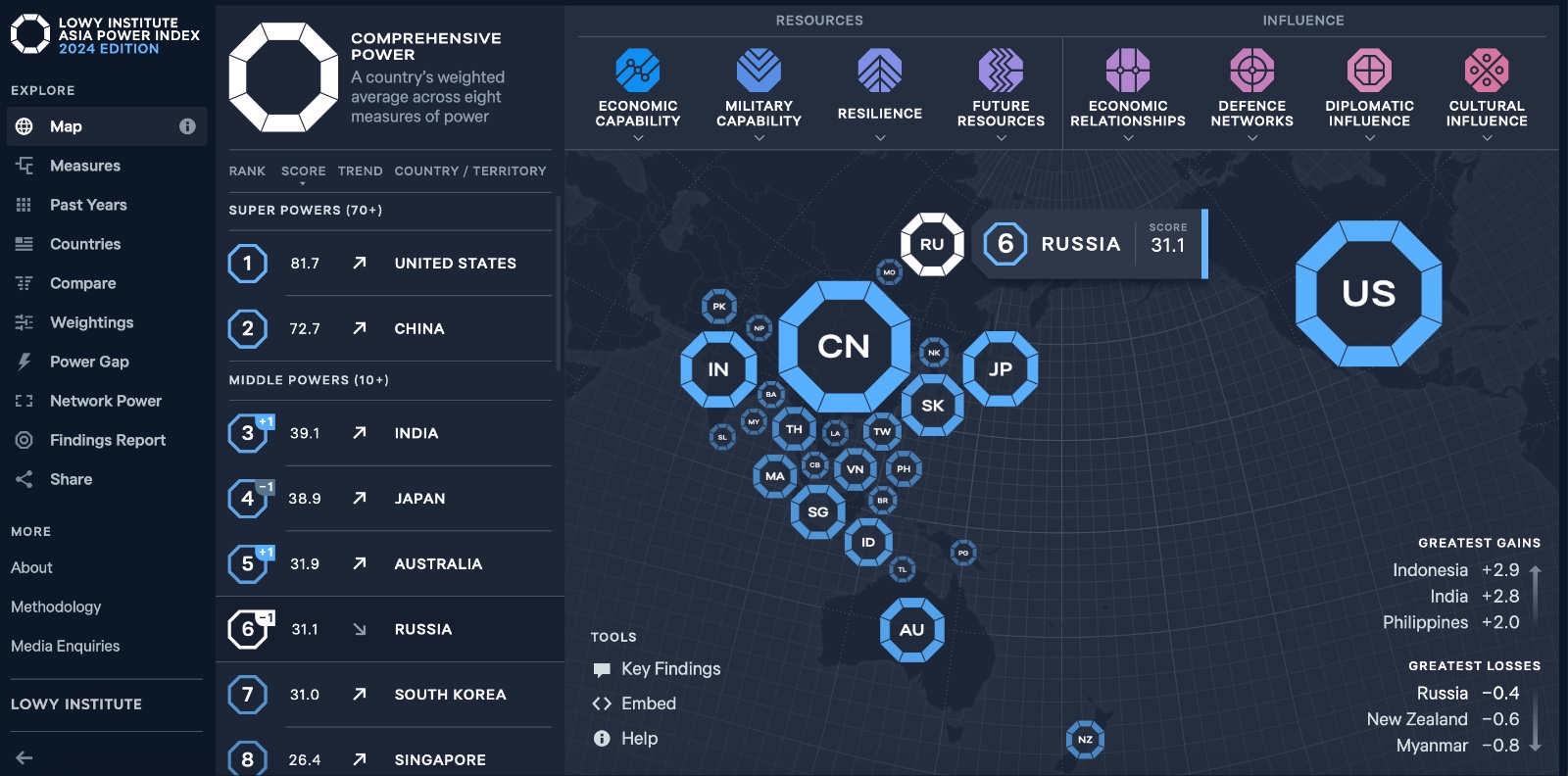
As for Asia’s third most powerful nation, the index shows that India has managed to surpass Japan.
“India is rising although a tad bit slowly. India has overtaken Japan to become the third-ranked power in Asia, but its clout remains below the potential promised by its resources,” the survey reports. In an impressive feat, India gained 2.8 in overall score.
Japan gained 1.6 points in the overall score. However, there is a caveat. Though its overall standing has improved considerably, its economic clout is waning. The index notes that Japan’s technological advantage has “eroded sharply in the face of competition from other advanced manufacturing hubs in South Korea, China, and Taiwan.”
While Australia has been placed at the fifth position ahead of Russia, the report states that “this increase in ranking is more a function of Russia’s decline since 2018 than Australia’s rise.” The country, which has been fairly active and has undertaken a more active military role in the region, has seen an increase of one point in its overall score.
The report states that Moscow’s negative power gap score, which has worsened over the past year, indicates that, given its resources, it has less influence in the region than one might think. This suggests, among other things, that Russia’s power is constrained by its location on Asia’s perimeter.
Analysts believe Russia’s absence from the top five most powerful nations in the Asia Power Index indicates that the country is increasingly being left out of the reckoning.
However, the report highlights: “Despite a significant decline, resilience remains Russia’s strongest measure, where it places 3rd, reflecting the country’s relative resource security and well-established nuclear deterrence capability. Its weakest measure is economic relationships, where it places 19th.”
Russia’s Position Weakened, But Military Spending Soars
More than two years since Russia invaded Ukraine in February 2022, the country has been on a downward spiral. Several experts have noted, over the months, that Russian President Vladimir Putin expected his blitzkrieg-like ‘special military operation’ to end in a Russian victory in a few days. However, the protracted nature of the war and international military support for Ukraine has drained Moscow, which refuses to end the war.
Russia, for instance, has had to cope with unexpected military losses. It has lost equipment at an alarming rate: some of it was destroyed or captured by Ukrainian forces.
To strengthen its campaign, Moscow has had to seek help from countries like Iran and North Korea. Moscow is believed to have received huge numbers of Iranian Shahed-class drones. Also, North Korea and Iran have been accused by the West of arming Russia with ballistic missiles.
The international sanctions imposed by the West on Russia have proved to be a major hindrance, adversely affecting its defense production capabilities. While Moscow has been able to bypass many of these sanctions through third-country transactions, they remain a major irritant.
To top it all off, Russia’s arms exports have experienced a significant downturn. According to the SIPRI report 2024, Russian armament exports fell by 53% between 2014-18 and 2019-23. Over the last five years, the decline has been particularly rapid. In 2019, Russia supplied large weapons to 31 states, but by 2023, that number dropped to only 12.
The states that have historically depended on Russia for military supplies have shown reluctance to make new acquisitions, as Moscow has been delaying shipments for existing orders. This situation has led to dissatisfaction, as seen in Armenia’s resentment and decoupling with Russia.
While several pro-Ukraine and pro-West analysts have noted that the war could end in a Russian downfall, the country has shown resilience. Despite major obstacles in the last few years, the nation is still determined to recover. Using its influence and cordial relations, Russia has managed to sell its oil and gas freely, notwithstanding international sanctions.
According to a new Bloomberg report, which cited draft budget proposals reviewed by it, Russia intends to dramatically boost its defense budget in 2025, maintaining high levels of military spending as the war in Ukraine grinds on.
The proposed three-year budget proposals show that Russia plans to increase defense spending from the 10.4 trillion rubles ($112 billion) estimated for this year to 13.2 trillion rubles ($142 billion) in 2025.
This increase would amount to 6.2% of Russia’s estimated GDP, a historically significant figure considering the subdued outlook for the conclusion of the Ukrainian war, with Russian forces rapidly advancing inside Eastern Ukraine and a ceasefire elusive.



